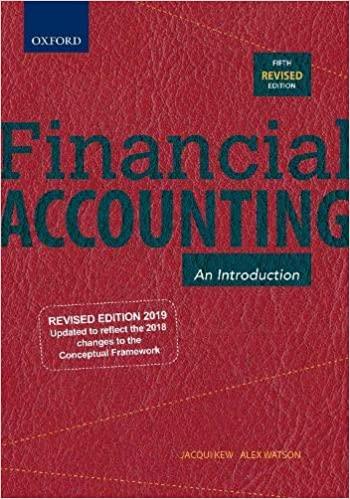Answered step by step
Verified Expert Solution
Question
1 Approved Answer
SCENARIO: (You invented Dura-Clear windows that never need washing! Nothing sticks to them - not pollution, pollen, dirt, dust, bird droppings, fingerprints, nothing. You've invested
SCENARIO: 


SHOW ALI YOUR SUPPORTING CALCULATIONS! You may do this either within the cell by using formulas, out to the right, or both - clearly labeling your work. All your work must be shown on this sheet, not on a separate tab. Forecasted Income Statement (20 points: 5 for showing work, 15 for accuracy) Based upon your financial forecast for the years 20232027, compute the following ratios, placing your final results in the yellow highlighted area: \begin{tabular}{|c|l|c|} \hline & & Industry Averages \\ \hline a & Profit Margin & 12.20% \\ \hline b & ROA & 8.75% \\ \hline c & ROE & 22.42% \\ \hline d & Current ratio & 2.33X \\ \hline e & Quick ratio & 1.45X \\ \hline f & Debt-to-Total Assets & 43.05% \\ \hline g & Times Interest Earne & 10.28X \\ \hline \end{tabular} (HINT: Enter Interest Expense as a positive number for TIE) 15 points: 5 for showing work, 10 for accuracy Compute Required New Funds (RNF) for each year (HINT: See Formula 4-1 in your Week 3 Chapter readings) OPTONAL: It would be very helpful to fill out the table below identifying the necessary variables before attempting to compute RNF. \begin{tabular}{|c|c|c|c|c|c|c|} \hline & & 2023 & 2024 & 2025 & 2026 & 2027 \\ \hline \multicolumn{7}{|c|}{A/s= Total Current Assets / Sales } \\ \hline \multicolumn{7}{|c|}{S= Current Sales - Last year's Sales } \\ \hline \multicolumn{7}{|c|}{ L/S = Total Current Liabilities/Sales } \\ \hline P & = Profit Margin (see 1o above!) & & & & & \\ \hline s2 & = Sales in the current yr & & & & & \\ \hlineD & = Dividend Payout Ratio = Dividends & & & & & \\ \hline \end{tabular} (5 points: 1 pt for grammar/spelling, 4 pts for thought-out, correct answers) c. Are your liquidity ratios better or worse than the Industry Averages shown on your Milestone 2 Metrics worksheet? d. Regardless of your answer to question 1c, what can happen to a company with poor liquidity? (5 points: 1 pt for grammar/speliling, 4 pts for thought-out, correct answers) e. Are your debt utilization ratios better or worse than the Industry Averages shown on your Milestone 2 Metrics workshe t. What is the difference between what a debt utilization ratio measures and what a liquidity ratio measures (You invented "Dura-Clear windows" that never need washing! Nothing sticks to them - not pollution, pollen, dirt, dust, bird droppings, fingerprints, nothing. You've invested all your own savings, your parents* savings, and some of your friends' savings as well into the R&D, production, and start-up of your business.
It's been three years since you started selling your windows primarily to single-family homeowners, but now apartment building contractors across the nation have been requesting your windows. Unfortunately, you're already operating at full capacity. It's time to make the switch from single-family homes to commercial buildings, but to do so requires a large infusion of funding for expansion. You need more of everything: space, equipment, employees, etc.
Ever the optimist, you applied to the TV show Shark Tank--where entrepreneurs compete for funding from angel investors ("sharks")--to see if a shark will invest in your company and serve as a mentor as well. To your surprise, you were accepted to the show! You've already prepared most of your marketing and sales pitches, and now it's time to put together your forecasted financial statements. You intend to show the sharks that backing your business would be a very profitable investment. You also need to determine how much funding to ask for in exchange for how much ownership you'll give up.
It's STILL January 1, 2023, and you'll be going on Shark Tank in 2 weeks. You are unhappy with your previous Sales Forecast (Milestone 1) because using your current level of sales to residences was not a good predictor of your upcoming sales to commercial builders. You believe your sales will increase significantly and that each order will result in a higher profit. You decide to change your forecasting method to a combination of Ratios, Percent-of-Sales, and Pro Forma forecasting.



Step by Step Solution
There are 3 Steps involved in it
Step: 1

Get Instant Access to Expert-Tailored Solutions
See step-by-step solutions with expert insights and AI powered tools for academic success
Step: 2

Step: 3

Ace Your Homework with AI
Get the answers you need in no time with our AI-driven, step-by-step assistance
Get Started


